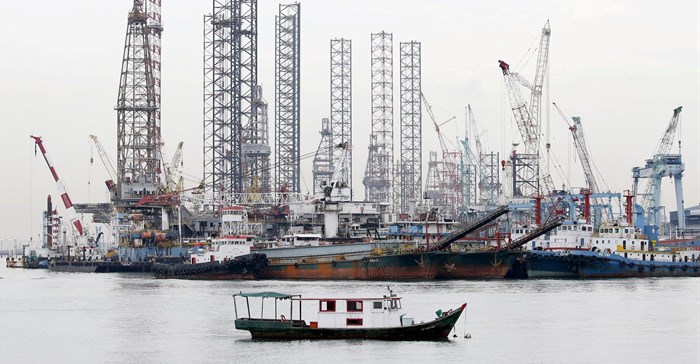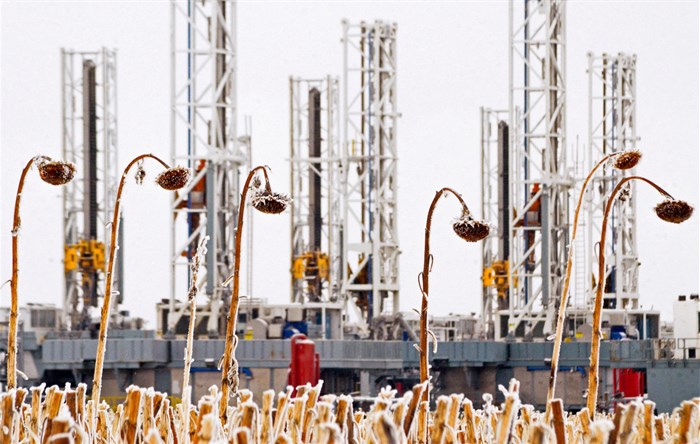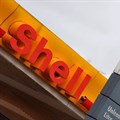Oil giants drill deep as profits trump climate concerns

The exploration revival - on the part of European majors in particular - reflects a renewed commitment to oil and gas after Shell and BP slowed down plans to shift away from their legacy business and invest in renewables as part of the energy transition.
It responds to pressure from a majority of investors to maximise their oil and gas profits rather than invest in lower margin renewable energy businesses.
It also defies protests from a minority of activist investors who want oil companies to be more closely aligned with global efforts to mitigate climate change.
The renewed appetite for oil and gas reserves and production is an especially big turnaround for BP, which got rid of most staff from its exploration unit three years ago.
Exploration is a long-term, high-risk business. Big-ticket offshore projects typically take five years to develop from discovery and at least another 10 years to return the initial investment.
But as a source of profit, it has proved more reliable for the energy majors than the very different business model of producing renewable energy.
Upstream oil and gas have historically had returns of around 15-20%, while most renewables projects have delivered up to 8%.
An oil and gas price rally driven by energy producer Russia's invasion of Ukraine translated into record profits for the energy majors.
That has increased confidence in the most costly, high-risk offshore exploration that can also deliver the highest rewards.
"Offshore is experiencing a renaissance," oilfield services company SLB chief executive Olivier Le Peuch said on 21 June.
Leading industry data providers and consultancies endorse the view.
The number of offshore drilling vessels used to explore and produce oil and gas recovered in May to pre-pandemic levels, rising by 45% from October 2020 lows, an analysis of data from oil services firm Baker Hughes showed.
Wood Mackenzie analysts predict a continued increase in activity, forecasting offshore exploration and drilling activity to grow by 20% by 2025.
Already, the rise in drilling has helped to drive daily rates for leasing drilling rigs to the highest levels since a 2014 downturn when commodity markets crashed.
"Higher oil prices, the focus on energy security and deep water's emissions advantages have supported deep water development and, to some extent, boosted exploration," Wood Mackenzie analyst Leslie Cook said.
The potential size of offshore deposits can ensure economies of scale, meaning less energy is used to extract each barrel, limiting emissions.

The International Energy Agency forecasts global upstream oil and gas investments are set to increase by around 11% to $528bn (approx. R9.9tn) in 2023, the highest level since 2015.
Barclays expects the number of offshore projects to get approval this year will reach a 10-year high.
Wood Mackenzie meanwhile predicts the commitment of up to $185bn (approx. R3.5tn) to develop 27 billion barrels of oil reserves, with international oil companies focused on the higher-cost, higher-return deepwater developments.
It also anticipated the so-called Golden Triangle – US Gulf of Mexico, South America and West Africa – as well as part of the Mediterranean will account for 75% of global floating rig demand through 2027.
From Namibia to far off eastern Canada
Activity extends beyond that core exploration territory.
Nambia, which has yet to produce any oil and gas, has attracted strong interest after Shell and TotalEnergies made discoveries off the coast of the southern African country.
Shell's head of upstream Zoë Yujnovich said on 14 June that results from drilling tests so far were encouraging.
Together with its partners QatarEnergy and Namibia's national oil company, Shell plans to drill two further wells in Namibia by the third quarter of this year, a document seen by Reuters shows.
Shell has also applied for a licence to drill another 10 exploration and appraisal wells there, the document shows.
TotalEnergies made an oil discovery in February 2022 in the Venus well in Nambia's Petroleum Exploration Licence (PEL) 56, which analysts at Barclays estimate holds three billion barrels of oil equivalent (boe).
Shell reported discoveries in the Graff, La Rona and Jonker wells in PEL 39, which together are estimated to hold 1.7 billion boe, according to Barclays.
As it tries to reverse a decline in oil and gas output after it shifted to renewables, BP has turned to the Gulf of Mexico and far off the eastern coast of Canada, where it is ramping up oil exploration activity in frontier prospects.
Source: Reuters

Reuters, the news and media division of Thomson Reuters, is the world's largest multimedia news provider, reaching billions of people worldwide every day.
Go to: https://www.reuters.com/












